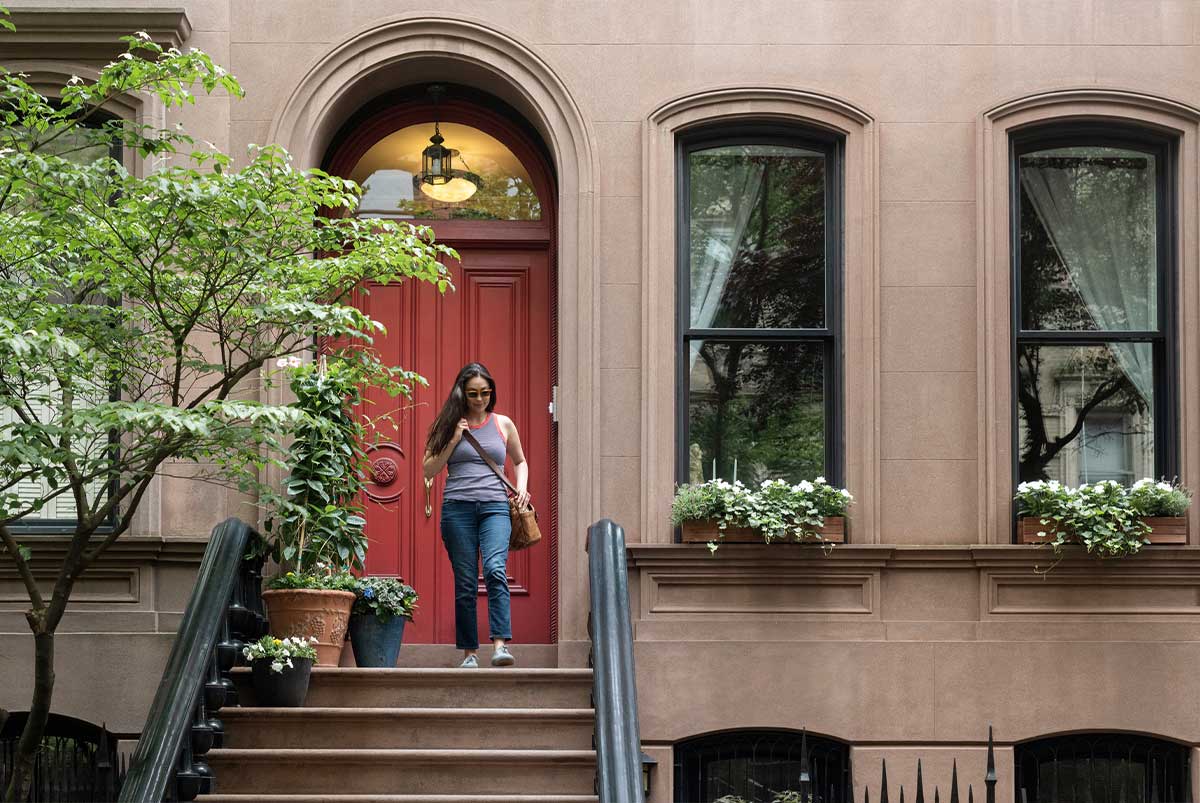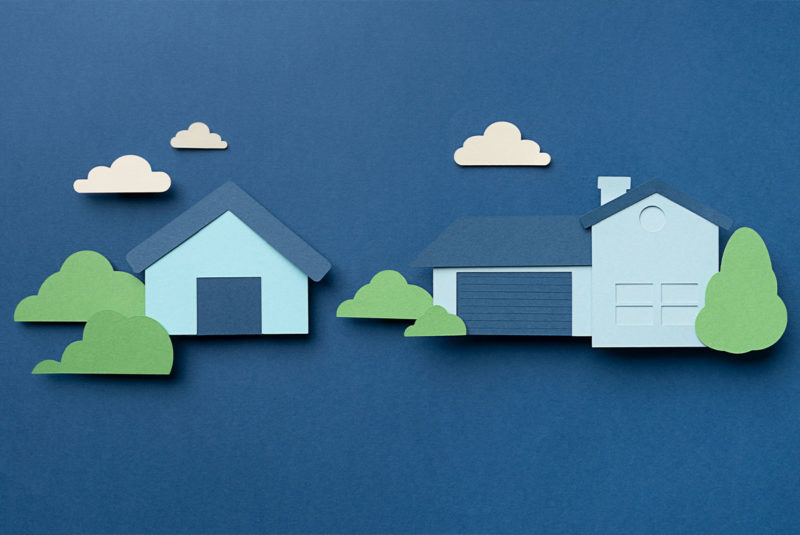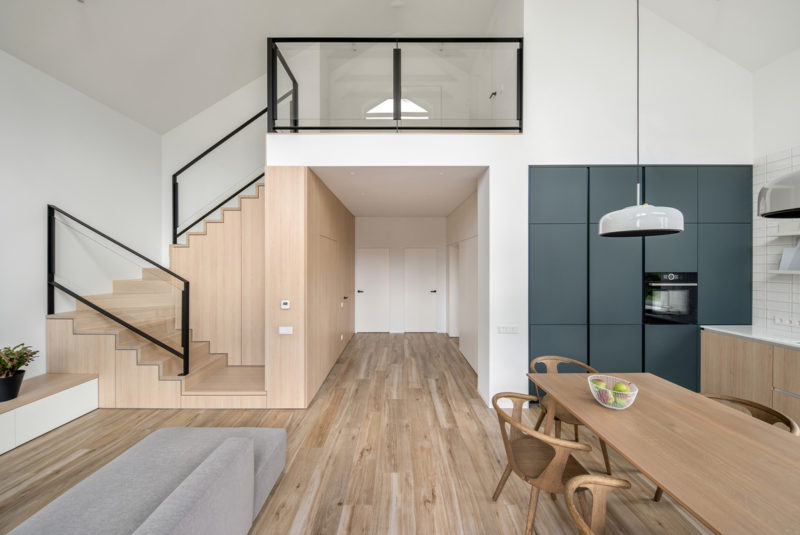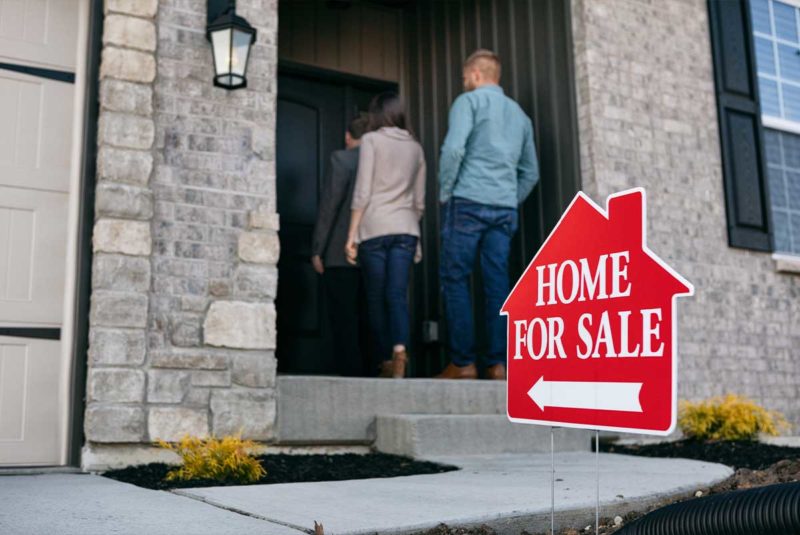Ready To Buy a Home?
Get Approved to Buy a Home
Rocket Mortgage® lets you get to house hunting sooner.
Many fortunes have been made investing in real estate, and it’s a well-known fact that investing in real estate can be highly profitable when done correctly.
While you probably aren’t ready to start building office parks or apartment buildings, you may be ready to jump into the world of real estate investing by purchasing a rental property.
If you’re a new investor thinking of buying your first rental property, it’s important to make sure things go smoothly. That’s why we’re here to tell you everything you need to know about selecting, financing and investing in a rental property.
What To Know About Being a Landlord
Owning rental properties comes with certain obligations. So before you sign up to be a landlord, make sure you know what you’re getting yourself into.
Landlords have to abide by state and local landlord-tenant laws, which provide legal protections for both you and your tenants. Landlords are also responsible for maintaining the house and paying for property taxes and major repairs.
If you’re financing the purchase of a rental property with a mortgage, you’ll also have to buy a landlord insurance policy, which can protect you from financial losses due to liability claims or damage to the property.
For landlords who don’t want to deal with running a rental property themselves, hiring a property management company is the best alternative. They typically handle everything from collecting rent to overseeing maintenance requests.
How To Buy Rental Property
Buying a rental property is very similar to buying a home you plan to live in. You can either pay for the property in cash, or you can finance the purchase by taking out a mortgage.
Each of these buying options has advantages and disadvantages, and the one that’s best for you comes down to your goals, personal preferences and financial situation.
Mortgages for rental property
While you may be able to use a Federal Housing Administration (FHA) loan or Veterans Affairs (VA) loan to buy a multi-unit rental property – as long as one of the units serves as your primary residence – a conventional loan is a more flexible and popular option.
If you want to take out a loan to buy rental property, the requirements might be a little different than if you were buying a home to live in. For example, lenders may require a larger down payment or higher minimum credit score when you buy rental property. Some lenders might also impose other limitations for buying a rental property, like certain down payment assistance programs.[1]
Purchasing a rental property with a mortgage can help you afford a property you otherwise wouldn’t be able to.
If you invest wisely, you should also be able to generate passive income – if your rental income exceeds your operating expenses (such as mortgage payments, upkeep costs, property management fees and taxes). Another perk of using a mortgage to buy rental property is that you can claim a tax deduction on the mortgage interest you pay.
Paying in cash
If you want to buy a house with cash, you can skip the mortgage approval process and close after the title search is complete.
The concept of paying cash for a house is often associated with bringing a briefcase full of $100 bills to closing. Fortunately, you can close on a rental property by wiring the money or using a cashier’s check or certified check.
Buying a property with cash can save you from having to pay interest and help increase your cash flows.
Cash is also considered a powerful bargaining chip when making an offer on a house, which can help give you a leg up on the competition.
However, making such a large investment up front could mean you might not have enough money to spend or invest elsewhere.
What To Look For in a Rental Property
Before buying a rental property, you have to find the right home. When shopping for a rental property, take your time evaluating the type of property, as well as the location and condition.
Location
Location is one of the most important factors to consider before buying a property – rental or otherwise.
A home’s location is vital to the success of your rental property because it influences demand and pricing. Renters typically want to live in areas with highly rated schools and easy access to public transportation, restaurants and other amenities. Location may also play an important part in your search for a rental property if you plan on managing it yourself, which may be more challenging if you don’t live nearby.
Property type
There are two main types of rental property: single-family homes and multifamily homes.
A single-family home typically comes with a lower price point and is easier to sell.
Multifamily properties tend to generate higher returns and give you the option to live in one of the units – which also means you may be able to use an FHA or VA loan to finance your purchase. Multifamily properties can also reduce your exposure to risks because if you have multiple tenants and one fails to pay rent, you’ll only lose part of your rental income.
Though multifamily properties are easier to scale and may yield higher returns, they’re also harder to manage. Instead of one tenant, you might have three or four. You’ll also have to worry about vacancy in your rental units, along with more leases, maintenance requests and repairs to deal with. Finally, when it’s time to sell the property, the potential pool of buyers is smaller because the average home buyer will likely prefer a single-family home.
Property condition
One of the key decisions you’ll have to make when purchasing rental property is choosing between move-in ready homes and fixer-uppers.
Move-in ready is convenient because you shouldn’t have to do any major repairs or renovations right away, meaning you can rent the home as soon as you find a tenant. If you’re taking out a mortgage, a move-in ready home will also be easier to finance than a home that’s in urgent need of repairs.
Move-in ready homes usually fetch top dollar because most people don’t want to deal with the hassle of fixing up a house in disrepair.
Fixer-uppers aren’t for the faint of heart. But if you’re willing to put in the work, a fixer-upper can be a very good investment.
Many home buyers don’t want to deal with a fixer-upper, which can reduce competition and give you the opportunity to get a property for a lower purchase price. Since the property needs renovations anyway, you’ll have the freedom to choose how you want to customize the home.
On the flip side, you’ll be the one who has to deal with renovations. So make sure you’re prepared to deal with the time and expenses associated with these projects, along with navigating any red tape when you submit building plans or obtain permits from the local government.
Pros and Cons of Buying a Rental Property
To help you determine whether buying a rental property is right for you, you need to think about the pros and cons. No investment is perfect, but it’s up to you to decide if the benefits of buying rental property outweigh the drawbacks.
Pros
Pros of buying rental property can include:
- Creating passive income
- Getting tax deductions on mortgage interest and other rental expenses
- Owning an appreciating asset (historically, property values tend to increase over time)
- Diversifying your investment portfolio
Cons
Cons of buying rental property can include:
- High upfront costs
- Risk of mortgage delinquency (missing mortgage payments if your tenant doesn’t pay the rent on time)
- Challenges of being a landlord (finding qualified tenants, reviewing leases, overseeing repairs, dealing with evictions, etc.)
- Committing to real estate, which isn’t liquid (needing to look elsewhere for quick cash)
Is Rental Property Your Next Investment?
Rental property can be an excellent investment. But like all investments, it has some disadvantages. For example, buying a rental property is a bit more complicated than investing in broad index funds that trade on the stock market. So while you might generate higher returns with a rental property, you may have to take a more active role in managing your investment, in addition to assuming new risks. Before buying rental property, run the numbers and calculate the return on investment (ROI) to ensure you’re making a smart investment.
Take the first step toward buying a home.
Get approved. See what you qualify for. Start house hunting.
The Short Version
- There are two main types of rental property: single-family homes and multifamily homes
- For landlords who don’t want to deal with running a rental property themselves, hiring a property management company is the best alternative
- If you want to take out a loan to buy rental property, the requirements might be a little different than if you were buying a home to live in
Fannie Mae. “Eligibility Matrix.” Retrieved November 2022 from https://singlefamily.fanniemae.com/media/20786/display




